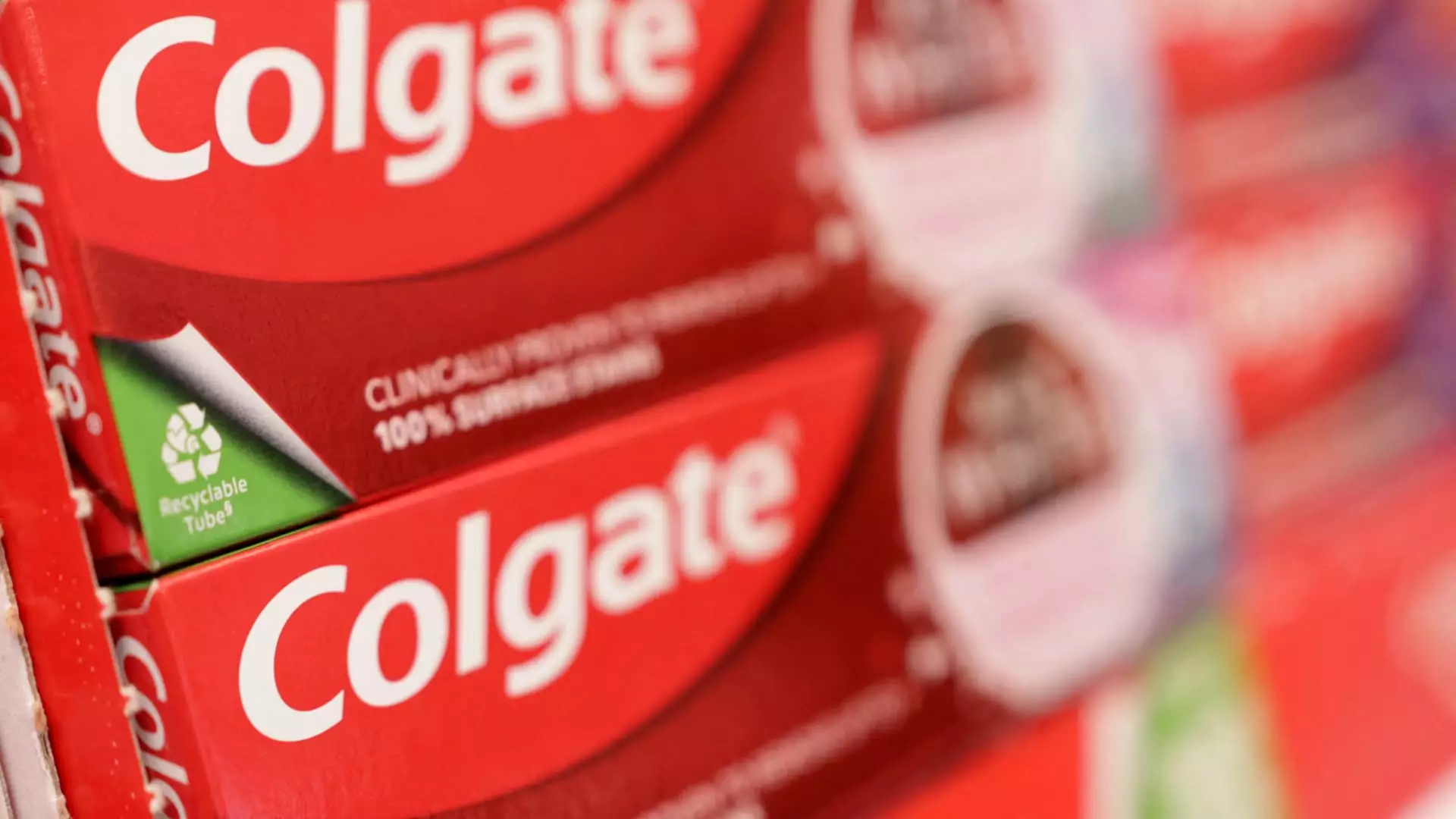As financial markets experience fluctuations driven by earnings reports and forecasts, several notable companies have emerged in midday trading reflecting both challenges and triumphs. Investors are keenly observing these movements as they may signal future trends in various sectors.
One of the more significant disappointments in today’s trading session is Colgate-Palmolive, whose shares dropped 4% following their fourth-quarter earnings report. The company’s revenue came in below analysts’ expectations, underscoring the impact of unfavorable foreign exchange rates. As a well-established player in the household products sector, Colgate-Palmolive must contend with challenges that have the potential to claw back its market share. The company’s forecast for weak sales in 2025 further exacerbates the situation, raising concerns about consumer spending patterns in an inflationary environment.
In contrast, KLA Corporation’s stock surged by 2% after it reported robust fiscal second-quarter results, outpacing analyst expectations on both revenue and earnings per share. With adjusted earnings hitting $8.20 per share on revenues of $3.08 billion, KLA showcases a strong position in the semiconductor industry, a sector deeply interconnected with technological advancements and innovation. This positive performance may also reflect broader trends in semiconductor demand as industries increasingly rely on advanced chips for various applications.
Vertex Pharmaceuticals made headlines with a significant 7% jump in their stocks following FDA approval for a groundbreaking non-opioid painkiller. This approval marks a notable shift in the pharmaceutical landscape, as it presents a viable alternative for pain management amid rising concerns surrounding opioid addiction. Vertex’s innovative approach not only promises to enhance its market position but also underscores an industry pivot towards safer medication options in response to public health crises.
On the other hand, Deckers Outdoor, known for its Ugg and Hoka brands, experienced a steep decline of approximately 17%. Despite raising its full-year revenue guidance, the figure failed to meet analyst expectations, which has led to investor concerns despite better-than-expected fiscal third-quarter results. Such market reactions highlight the volatility in consumer goods companies, especially in a competitive market where company reliability and forecasting accuracy are paramount.
AbbVie, in another striking performance, saw its shares rise by 6% after the company surpassed earnings expectations in the fourth quarter. With adjusted earnings of $2.16 per share, AbbVie not only fulfilled market anticipations but also reaffirmed a strong compound annual revenue growth rate outlook through 2029. This resilience can serve as a reassurance to investors and emphasizes the pharmaceutical sector’s ongoing demand for innovative treatments.
Technology firm Atlassian illustrated a remarkable 16% surge, reaching a 52-week high on the back of its strong fiscal second-quarter results. The reported earnings and revenue exceeded analyst forecasts, reinforcing the sentiment that software companies continue to thrive amid a digitally transforming economy. Atlassian’s success could symbolize a broader trend among tech firms cementing their roles as essential players in the corporate landscape.
Walgreens Boots Alliance Struggles
Conversely, Walgreens Boots Alliance witnessed a sharp fall of more than 7% after announcing a suspension of its quarterly cash dividend amidst ongoing turnaround efforts. This move signals critical financial reassessment as the company strives to address mounting debts and is indicative of broader struggles within the retail pharmacy sector.
Cautious Outlook for Chevron
Energy giant Chevron experienced a decline of 3.8% after its fourth-quarter earnings fell short of projections. Notably, the company’s refined sector losses contributed to this downturn, despite reporting substantial revenue figures. Investors may need to consider the implications of fluctuating oil prices and operational efficiencies impacting its refining capabilities.
As financial markets react to various earnings reports, it’s evident that the environment is becoming increasingly complex. Some companies are successfully navigating through challenges, while others are grappling with unexpected setbacks. Investors must stay vigilant, as these movements can reveal insights into evolving market trends, influencing their strategic decisions moving forward. A careful analysis of sectors shows that while some are thriving, others may need to re-strategize in light of changing consumer behaviors and economic pressures.

